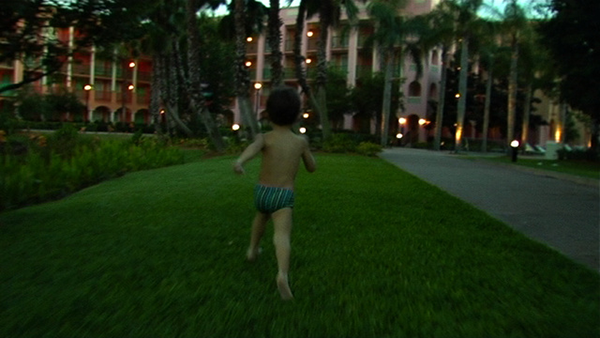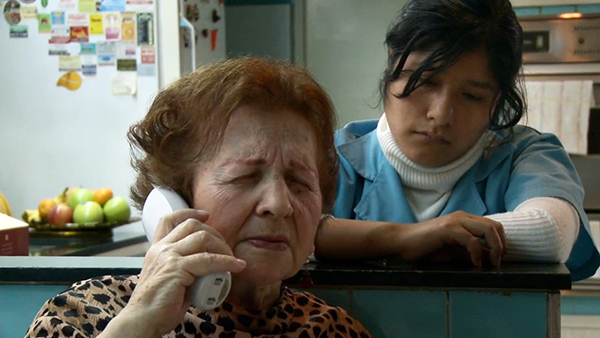Review: Papirosen

Any filmmaker undertaking a family portrait has to strike the right balance between conveying a very personal experience and fashioning a more broadly engaging narrative. In Papirosen, Gastón Solnicki rarely points the camera away from his Buenos Aires kinsfolk, even as they get ready in the morning and traipse around shirtless in the evening. It’s quite possible to settle comfortably into the viewpoint of his loving gaze and treat the film as a 74-minute compilation of gorgeous home movies. But that would be unfair to the filmmaking accomplishment of Solnicki, who spent so much time with camera in hand that his family seems not to notice him at the Passover dinner table; who ultimately pared down over 200 hours of footage, spanning a decade; and who emerged with a poignant documentary about the legacy of a traumatic past as experienced across four generations.
The film opens in voiceover, with Solnicki’s grandmother, Pola (who sounds like a warbling klezmer viola), recounting being taken at age 16 from Poland to the concentration camps. Her brother and many relatives were killed, but she survived and eventually moved to Buenos Aires to raise her family. But while Pola talks about the past, more recent times appear on screen: the director’s father, Victor, and young nephew, Mateo, ascending in a ski lift, followed by Super-8 footage of Gastón’s parents as kids, beaming at the camera. It might sound like a simple contrast—Pola’s account of suffering versus later scenes of happiness—but there’s something unsettling about the ski lift’s metal apparatus against the snow-covered mountainside, and the silhouettes of family members caught silently on film like ghosts.

Even in the company of loved ones, some of whom never experienced the war for themselves, latent memories of suffering still seem to cast a dark shadow. Though there is no actual footage from World War II, it is as if the film bears a trace of PTSD; like Chantal Akerman, whose own films bear the imprint of the past, Solnicki is a second-generation survivor. Here he sometimes dwells on the sounds of passing trains, and during a sequence at a fashion event, he points his lens at a barbed-wire fence and the emaciated back of one guest. He often catches family members when their faces are lined with deep exhaustion. At a time when the world’s remaining Holocaust survivors are reaching the end of their years, Papirosen poses an important question: how, and how much, does the psychological residue manifest itself?
Something about the film’s muted tone suggests that the inner turmoil is in fact constant—especially for Victor, who was born during the war and is the film’s central focus. He is rarely shown discussing the past, but his actions reveal a desire to recover the childhood that he missed, moving from place to place (“escaping the Russians”) without papers. Late in the film he returns to what was formerly Czechoslovakia, where he spent his first two years; at an antique shop in Prague, he spends an unusual amount of time deciding whether to buy a toy car. Though Gastón is present, filming, Victor seems distant, occasionally recalling a memory, as though he is busy refashioning the past for his own peace of mind. The moments of blissful reprieve from internal gloom always involve family union: Victor reading to his grandson, or the family sitting down to dinner together, or old footage of a bar mitzvah suddenly filling the frame.
As much as Papirosen traces history through genealogy, like many such documentary accounts, it also simply underlines the enduring importance of devotion to family. There is some sense that younger generations without the same historical fortification aren’t demonstrating the same deep parental love that Victor possesses. Gastón’s sister at one point laments how her (eventually ex-) husband no longer helps her take care of the kids—she says it was a “mistake” not to have married someone like her father—while his brother Alan, glowers during his infrequent visits for dinner, and announces a desire to distance himself from everyone, which saddens his parents. But for the older generation, the proximity to hardship has deepened their compassion for our sons and daughters, even as wounds from the unhappy past seem impossible to heal.







